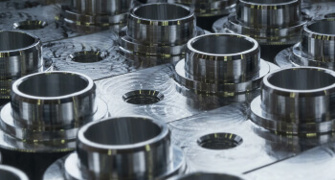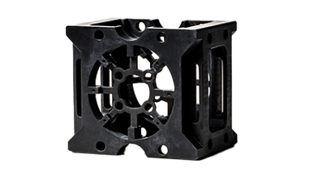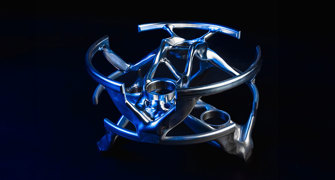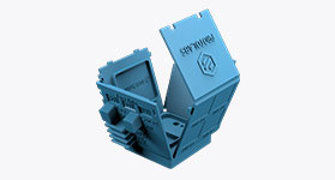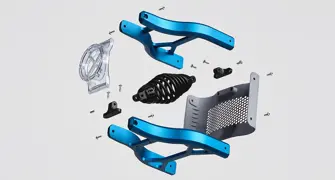Part II: How Digitalization Ensures Quality in Manufacturing – Production

Quality systems play a fundamental role in manufacturing. As mentioned last week in Part I of this three-part series on Protolabs’ approach to quality, many manufacturers ensure quality by gaining and maintaining rigorous quality certifications, or through programs such as Lean and Six Sigma.
Unlike quality measures of traditional manufacturing systems—usually conducted at the end of the production chain—the quality system at Protolabs is found throughout the entire manufacturing process. Last week we looked at quality controls found in pre-production stages. This week’s column takes a look at quality and the production process.
Production: Maintaining Quality during Manufacturing
Touring the production floor at any of Protolabs’ manufacturing plants, visitors would find presses, mills, 3D printers, and other equipment, from several different OEM sources. The company is technology agnostic, meaning that Protolabs chooses and uses equipment that is best suited for customers’ parts, another nod to overall quality. In addition, the manufacturing spaces themselves are kept clean, well-organized, and climate controlled.
A visual queue of the production schedule is provided on the floor. The queue is color coded and displayed on easy-to-read monitors throughout the plant so personnel know exactly which order to run and when it should run. Printers, CNC machines, and molding presses are driven by the CAD model that is queued at each machine. These are the digital instructions for production, a pivotal piece of the digital thread.
But while Protolabs’ quality systems for molding, machining, and 3D printing share similarities, each service also has a unique set of quality measures.

Quality Control: Injection Molding
A number of quality-assurance steps span the molding process:
- Bar codes on all work orders keep everything organized and improve traceability
- Tight part-number and material controls ensure material requirements are met
- Thermoplastic molding resins are dried to specifications in calibrated drying equipment
- Dimensional quality inspections are conducted at the start of orders and during manufacturing, are documented electronically and become part of the manufacturing record
- In-process visual inspections can be conducted on an hourly basis to ensure parts match initial samples and workmanship standards
- Press settings are documented for future production runs
- Pressure and temperature controls are maintained for each shot in the molding process
Quality Control: CNC Machining
Quality-assurance elements in machining cover all lathes and mills:
- Bar codes on plastic and metal material blocks and metal rod stock to ensure traceability
- Digital instructions for each material stock is loaded in a predetermined CNC machine
- A set of pre-programmed instructions in the machining software mean minimal human-to-machine interaction is needed
- Sensors located inside the machine calibrate exact dimensions for additional accuracy
- Quality inspections confirm parts were made to customer specifications
Quality Control: 3D Printing
Industrial-grade 3D printing is far different from desktop printing and even small 3D printing bureaus. This is additive manufacturing at the commercial level, driving part consistency and repeatability.
- Additive manufacturing instructions are sent to software-enabled 3D printers
- Before the build begins, process engineers verify and prep the material, using an extensive checklist covering loading, unloading, and cleaning, which safeguards against mistakes.
- Temperatures during the build are monitored and adjusted accordingly
- Final parts are digitally tracked and have any required secondary ops performed before moving to inspection stations
Kevin Ashton is Protolabs’ Senior Quality Manager, and is responsible for providing leadership for all aspects of manufacturing quality assurance and continuous improvement in Protolabs’ North American operations.
Next Week, Part III: Inspections and Continuous Improvement

